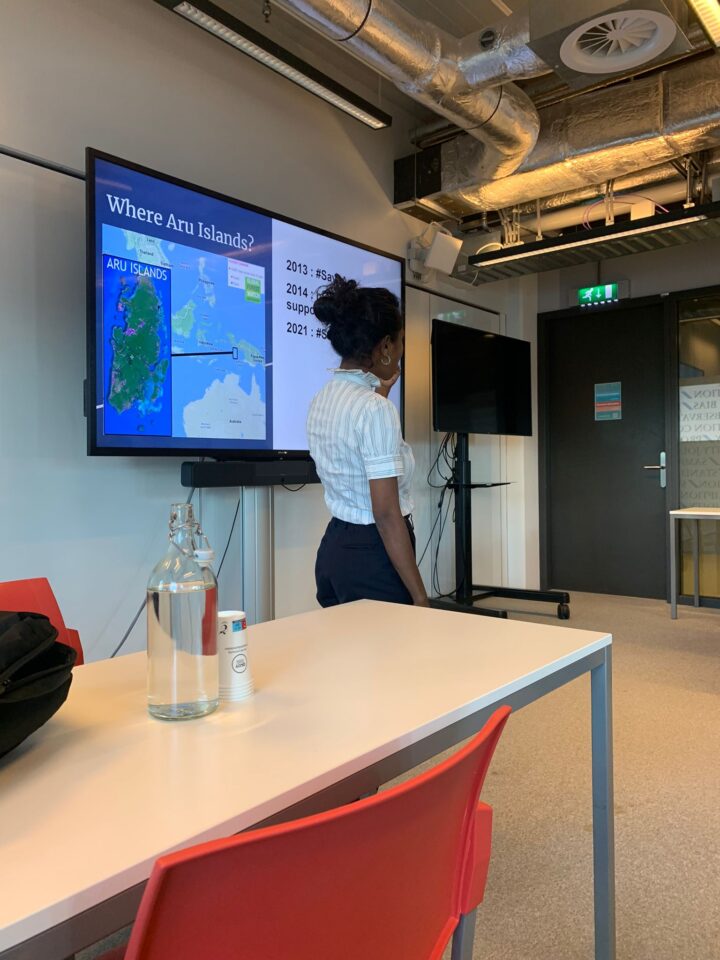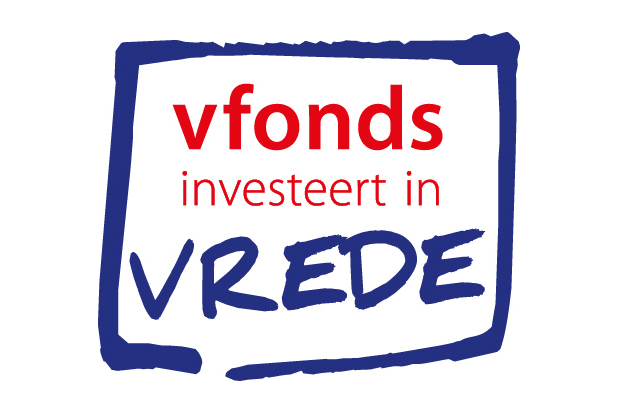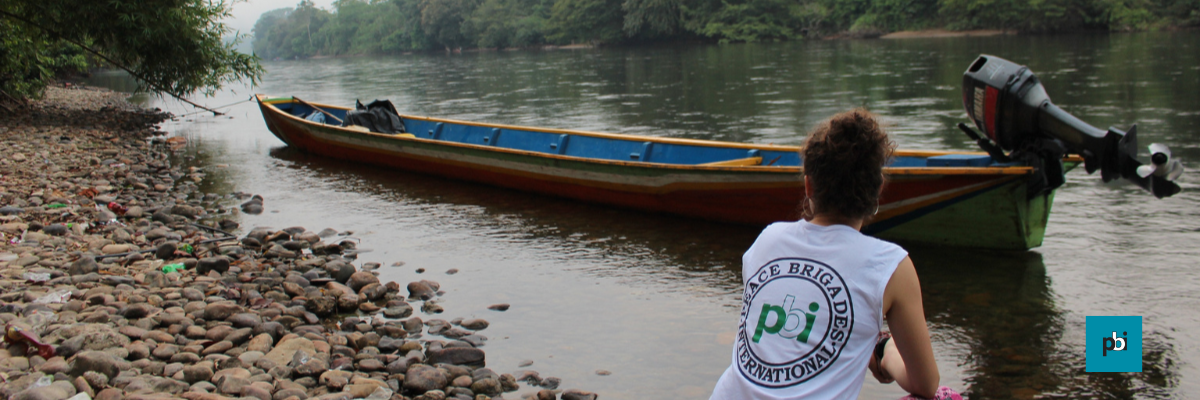From the 10th until the 13th of October, we had the honor of organizing the Dutch leg of a Speaker Tour for a human rights defender from Indonesia. During the Speaker Tour, our guest told her story of land grabbing, land rights, and indigenous rights. Spreading awareness about her situation, the situation of the land and the relevance of the land to the indigenous people currently inhabiting the many hectares. Our guest visited NGOs such as ActionAid and Both ENDS, and participated in events.
#SaveAru and #SaveMarafenfen
During her speeches, guest lectures and conversations, our guest raised awareness for the #SaveMarafenfen movement and used the #SaveAru movement she was also a part of to further highlight the necessity of #SaveMarafenfen. The #SaveAru movement is one of the few successful resistance movements in the campaign against landgrabbing in the Indonesian region. The resistance movement stood up against the arrival of the company Menara Group on the ground of the Aru islands. The company wanted to convert most of the rainforest on the islands to a sugar plantation. This, despite the rich biodiversity found on the island, which is home to several creatures that can only be found there, and nowhere else in the world. Additionally, the regions listed as potential sugar plantation ground belonged to indigenous people. In protection of their land, their villages, their home, and their nature, the Aruese people stood up and won. The sugar plantation company Menara Group was not able to use the Aru islands’ land. This long-read article goes deeper into the #SaveAru movement.
Unfortunately, the Aruese people have had no respite as an old acquaintance knocked on the Aru islands’ door. Currently, our guest, who has been part of both #SaveAru and #SaveMarafenfen, is campaigning against another potential exploiter of the islands, the Indonesian Navy. Unfortunately, this opponent isn’t a new one. For decades, the Aruese people have opposed their presence on the islands. Again, the Indonesian Navy’s presence is harmful to nature, indigenous people’s rights and specifically for the people of Marafenfen, a village on the Aru islands. Read more about the #SaveMarafenfen movement in this Indonesian article.
Universiteit van Amsterdam

Within the UvA, our guest had the opportunity to give a guest lecture to a group of students and staff with an interest in Governance and Inclusive Development. Our guest held an emotional lecture and answered some in-depth questions from the audience, highlighting the difficulties she faces at home as a human rights defender, as well as her success stories.
AIESEC in Utrecht
On Tuesday evening, our guest was welcomed at Utrecht Science Park for a guest lecture with the Utrecht chapter of AIESEC, an international student association. Our guest held her presentation to a captivated audience, with many questions. The participating students showed great interest in the story that our guest told, and made insightful comments about our speaker’s situation, linking it to other countries and giving ideas on additional ways of impact.
Indigenous Liberation Day @ Pakhuis de Zwijger
On Wednesday evening, the Indigenous Liberation Day event took place at Pakhuis de Zwijger in Amsterdam. The evening was a large gathering of indigenous people from all over the world, presenting their struggle with largely the same issue – land rights. Chief Dada was one of the keynote speakers, enlightening the audience about the issues he faces in Brazil in protection of the rainforest. Additionally, Esther Stanford-Xosei, a Reparations Specialist discussed reparatory justice for indigenous people and provided a clear vision of what repairs should be, and who they should work for.
After the keynote address, participants had signed up for different workshops. Among those, our guest took part in the International Solidarity Circle discussions, with other indigenous people from Brazil, Chile and employees from the Dutch organization Milieudefensie. The workshop centered on connections, working together to help each other. Our guest presented her story, and other attendees of our circle gave their tips, useful contacts, and ideas about what more our guest can do to further her case. Most of all it was a good opportunity to listen to different people who are generally heard less in the human rights sector, with only a small percentage of funding within human rights and land rights going to indigenous people – who are excellent protectors of their land.
Made possible by vfonds and LUSH



